If the Covid crisis already set the first course for the end of the age of globalism, the economic consequences of the Russian invasion of Ukraine seem to have made this development irreversible. The fragility of the supply chains linking Europe with East Asia, Europe’s dependence on Russian gas and Arab oil, the disastrous consequences of the outsourcing of production of vital goods such as medicines or semiconductors, the danger of famine due to supply stops from Ukraine and Russia - everywhere there is a crack in the woodwork of the globalist economic system.
What individual thinkers like Oswald Spengler already announced a hundred years ago is now hitting with full force: The West has made itself increasingly dependent on the rest of the world, certainly also in the naive illusion that the internal coherence of the capitalist bloc, secured by the military hegemony of the USA, would survive the Cold War. Any fear that the former colonies might one day no longer be satisfied with guaranteeing maximum returns to Western capital as low-wage countries, but rather start using knowledge transfers and industrial outsourcing to build their own potentially anti-Western policies, was dismissed as retrograde, illiberal, or even xenophobic. It was preferred to speak euphemistically of the “end of history” and the inevitability of “globalisation”, a term used to suggest that the modern world economy is based on a fair exchange of what everyone “does best”, has analogous advantages for all participants and ultimately leads to a multicultural post-historical world society.
In the meantime, these hopes have turned out to be what they always were: irresponsible milkmaid calculations, ideologically dressed up with humanistic pathos, at the end of which stands the long-term ruin of an entire civilisation. For “globalisation” was never really such a thing: culturally, it was based on the model of worldwide Europeanisation, ethnically on unlimited immigration from the Third World to the West, politically on the hegemony of the USA, economically on the dominance of a few Western global players from the fields of Big Data, Big Finance, Big Tech, or Big Pharma, and ideologically on the implicit acceptance of left-liberal universalism. Behind this façade sold as “globalisation”, however, a completely different development took place: the gradual cutting of the cord of the non-Western states from their previous hegemons; a cutting of the cord, at one end of which (as in the case of Africa) is the collapse of regular statehood and a strange mixture of anarchy, dictatorship and targeted exploitation of raw materials, while at the other end (as in the case of China) we are witnessing the establishment of its own political-economic metropolitan area, which ultimately owes its power to the import of Western knowledge and capital aimed at short-term returns and has now become a serious competitor to the ageing Western civilisation. The crises of recent years have brought to light the many self-deceptions of liberalism, on whose fatal short-sightedness the prosperity of an entire generation has been built - at the expense of their descendants, who now have to foot the bill for the fact that their industry has been “outsourced”, their scientific heritage squandered, their strategic independence destroyed, and their cultural homogeneity torn apart.
It turns out that “globalisation” in the general sense of the word never existed and that the only truly “globalised” civilisation is the Western one. All the others, on the other hand, have become, if not economically, then at least culturally and ideologically, increasingly homogenous, and patriotic - with the result that the crises of recent years have hit the still dreaming of open borders old West with full force, while others have long since been working towards Day X, where it is every man for himself. That day is steadily approaching, and the terrible weakness of the Occident can hardly be concealed. Its infrastructure is dilapidated, its education system backward, its industry outsourced, its capital drained away, its middle class exhausted, its political system delegitimised, its elites demotivated, its population over-aged, its cultural solidarity fragmented. Where do we go from here? The answer is obvious: the age of the naïve “One World” ideology is over or has shrunk completely to the West. Most of the Wests representatives do not yet realise that the “world community” they so grandiloquently invoke is ultimately reduced, with a few exceptions, to the states of purely European origin. Europe must become as quickly and completely independent of external powers as possible - whether this concerns military defence, digital autonomy, energy supply, foreign policy initiative, strategic raw materials, ideological-cultural cohesion, or scientific research. The average nation state, though the bearer of democracy and identity, can no longer carry this role alone - not even Germany and France - since the era of the great colonial empires of the 19th century with their almost insurmountable technological, military, and demographic lead over the rest of the world is long gone. In its place must come a united Europe - admittedly not the EU with its left-liberal ideology, which in its present form is to be understood as the strongest enemy of the real Occident, but a new, “hesperialist”, i.e. decidedly culturally patriotic association of states, which also claims for our continent a Monroe Doctrine and a healthy “Europe first”, as I recently described with many co-authors in my volume “Europa Aeterna” (Manuscriptum 2022).
Admittedly, between “should” and “will” there is a huge gorge of historical imponderables, and confusing normativity with reality has essentially led Europe to where it is today - on the precipice. So how can the above demand be fulfilled in concrete terms? Unfortunately, we can probably rule out a considered, organic, decades-long successive growth of the EU into such a new structure, together with the corresponding political strategies. The time we have left is too short before the “old” continent is definitely sidelined in world politics. A conflictual model is more likely: the euro crisis, the Afghanistan debacle, the inner turmoil of the USA, the complete disorientation of the EU, the self-destructive identity and energy policy of the left-liberal elites, the mindless confusion of Europe in the face of the war in Ukraine - all this (rightly) leaves a disastrous impression on the rest of the world and will only fuel further attempts to finally topple the hated West from its pedestal.
But with this, the “One World” and “Great Reset” daydreams of the Western late-liberal elites will also collapse. For even if China’s digital dictatorship is not a whit better than the one that is gradually brewing in Silicon Valley and Washington, there is still a world of difference between the outdated universal and deconstructionist approach of the latter and the civilisational patriotism of the former. It will thus amount to a massive humiliation of the West, which, while (unfortunately) unlikely to lead to a complete unwinding of the transhumanist dystopia that our current development amounts to - and probably even has to amount to in part in order to withstand competition from the East - could very well bring about a return to our own. In this respect, the Ukraine war, despite its horrors, could also initiate a salutary development. It has not only brought Europe’s consciously accepted dependencies to light, along with its fatal military weakness. It also leads once again to a confrontation with those values without which any civilisation is condemned to cynicism, nihilism and ultimately decadence and passivity: patriotism, willingness to make sacrifices, family, faith, love of one’s own, clout and courage - even in the face of supposedly hopeless situations. Will Europe internalise this lesson? The winter of war in 2022/23 will show: everything depends on whether the Europeans will view the upcoming test solely from the short-sighted perspective of being allowed to go back to “business as usual” as soon as possible and thus having to change as little as possible in their previous behaviour. Or whether the new circumstances in the East will finally lead to the long-overdue discussion, actually decades overdue, about the real and genuine fundamental values that should underlie European cooperation - not “cancel culture”, not gender ideology, not climate hysteria, not forced multiculturalism, but the naked survival of our civilisation, our way of life and our cultural heritage in the 21st and 22nd centuries.
Read also
The Essence of Things - Hesperialism
In the fifth episode of "The Essence of Things", we discuss the topic of philosophy of history and the concept of hesperialism.
David Engels
Interview: prof. David Engels in conversation with prof. Heinz Theisen
Im Gespräch mit Prof. Heinz Theisen. Wie steht es mit den "westlichen Werten": Kann der moralistische Universalismus auch im 21. Jh. immer noch eine realistische politische Richtschnur im Umgang mit den aufstrebenden außereuropäischen Mächten sein? Und wenn nicht, was soll an seine Stelle treten?
David Engels
'Don't just criticise, create!': Interview with Francesco Giubilei, founder and director of “Nazione Futura”
This is the ninth instalment of our new interview series, called “Don’t just criticise, create!” David Engels speaks with European artists, philosophers, priests, intellectuals, activists, and artisans who have each decided not only to lament 'the decline of the West' but also to endeavour to help reverse it.



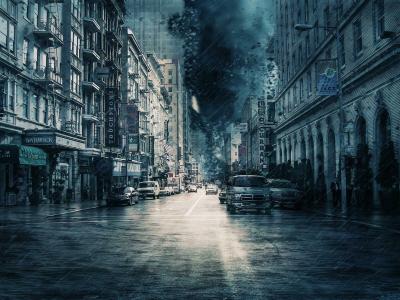

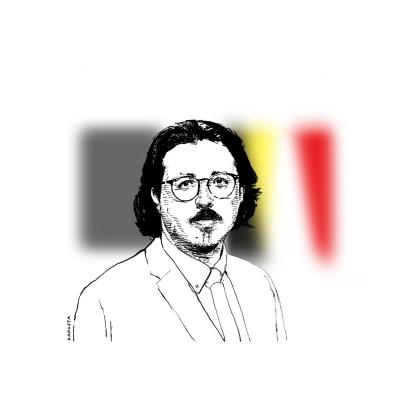
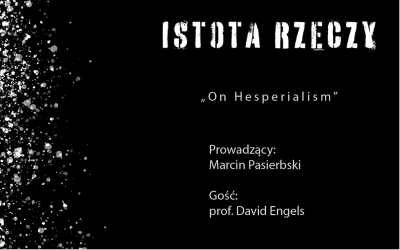

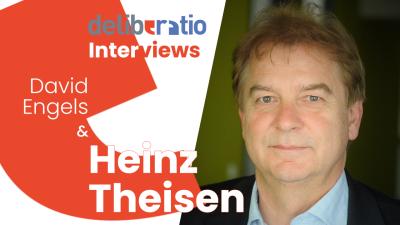



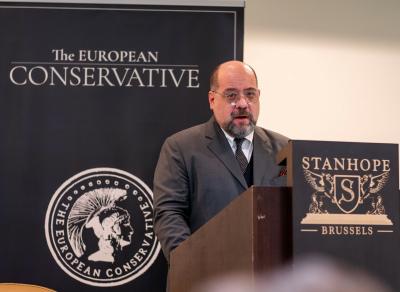

Comments (0)